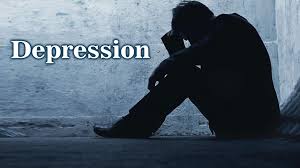
Also called major depressive disorder or clinical depression, it is a mood disorder that causes a loss of interest and persistent feeling of sadness can lead to a variety of emotional and physical problems.
Depression
Also called major depressive disorder or clinical depression, it is a mood disorder that causes a loss of interest and persistent feeling of sadness can lead to a variety of emotional and physical problems.
Symptoms:
· Angry outbursts, irritability or frustration, even over small matters
· Feelings of tearfulness, sadness
· Loss of interest or pleasure in most or all normal activities, such as sex, hobbies or sports
· Sleep disturbances
· Tiredness and lack of energy
· Anxiety, agitation or restlessness
· Slowed thinking, speaking or body movements
· Concentrating, making decisions, thinking and remembering things has been troubled
· Frequent suicidal thoughts
· Unexplained physical problems, such as back pain or headaches
Causes:
· Biological differences.
· Brain chemistry.
· Hormones.
· Inherited traits.
Risk factors:
· Self-critical or pessimistic,
· stressful or traumatic events, such as sexual or physical abuse, a difficult relationship, the death or loss of a loved one or financial problems
· Blood relatives with a bipolar disorder, history of depression, alcoholism or suicide
· Eating disorders
· Being bisexual or transgender, lesbian, gay or having variations in the genital organs development that aren't clearly male or female (intersex) in an unsupportive situation
· History of post-traumatic stress disorder or anxiety disorder
· Abuse of alcohol or recreational drugs
· chronic or serious illness including cancer, stroke, chronic pain or heart disease
· Certain medications, such as some high blood pressure medications or sleeping pills
Complications:
· Excess weight or obesity
· Pain or physical illness
· Alcohol or drug misuse
· Anxiety, panic disorder or social phobia
· Relationship difficulties, family conflicts and work or school problems
· Social isolation
· Suicidal feelings, suicide attempts or suicide
· Self-mutilation, such as cutting
· Premature death from medical conditions
Prevention:
· Take steps to control stress
· Reach out to family and friends
· Get treatment at the earliest sign of a problem
· Consider getting long-term maintenance treatment
Diagnosis:
· Physical exam. Your doctor may do a physical exam and ask questions about your health.
· Lab tests. For example, your doctor may do a blood test called a complete blood count or test your thyroid to make sure it's functioning properly.
· Psychiatric evaluation. Your mental health professional asks about your symptoms, thoughts, feelings and behavior patterns. You may be asked to fill out a questionnaire to help answer these questions.
· Diagnostic and Statistical Manual of Mental Disorders (DSM-5) mental health professional may use the criteria for depression
Treatment:
· SSRIs (Selective serotonin reuptake inhibitors). SSRIs include citalopram, escitalopram, fluoxetine, paroxetine, sertraline and vilazodone.
· SNRIs (Serotonin-norepinephrine reuptake inhibitors). Venlafaxine, duloxetine, desvenlafaxine and levomilnacipran.
· Atypical antidepressants. They include bupropion, mirtazapine, nefazodone, trazodone and vortioxetine.
· Tricyclic antidepressants. These drugs such as nortriptyline, imipramine, amitriptyline, trimipramine, doxepin, desipramine and protriptyline can be very effective, but tend to cause more-severe side effects than newer antidepressants.
· MAOIs (Monoamine oxidase inhibitors). Prescribe phenelzine, tranylcypromine and isocarboxazid, typically when other drugs haven't worked, because they can have serious side effects, a newer MAOI that sticks on the skin as a patch is selegiline.
· Other medications. Other medications may be added to an antidepressant drugs for the enhancement of antidepressant effects. The doctor may recommend by combining mood stabilizers or antipsychotics. Anti-anxiety and stimulant medications also may be added for short-term use.
Depression, depressive disorder, clinical depression, persistent feeling